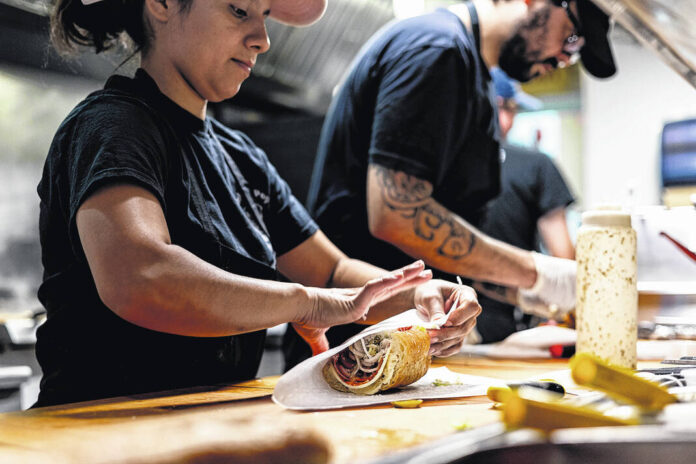NASHVILLE, Tennessee — In the past two years, lawmakers in at least 11 states have sought to loosen child labor laws to help employers fill empty jobs, even as federal officials and news investigations suggest that many minors working in manufacturing, meatpacking and construction jobs are being exploited or hurt.
The unemployment rate sits at 3.5% — a level last reached in 1969 — and businesses of all types, from factories to restaurants to retail stores, are struggling to find workers. Some state legislators, mostly Republicans, see teenagers as a partial solution. They also argue that relaxing the rules will prompt more teens to seek out valuable work experiences and make it easier for them to supplement their families’ incomes.
But critics say the bills, backed by business groups, are an attempt to roll back critical child labor protections that are nearly a century old.
“Do you remember the images of children in manufacturing and other dangerous work situations from the early 1900s?” Connie Ryan, executive director of the Interfaith Alliance of Iowa, asked lawmakers during a hearing on a bill there. “There is a reason our society said that it is not appropriate for children to work in those conditions.”
The legislation in Iowa would, for example, allow children as young as 14 to work in meat coolers and industrial laundries. In Ohio, Republican state senators last month approved a bill that would allow 14- and 15-year-olds to work until 9 p.m. during the school year. And in Minnesota, a proposal would allow 16- and 17-year-olds to work on construction sites.
“Eliminating work opportunities for youth just because of their age will make it even harder for businesses to find reliable employees,” Republican state Sen. Rich Draheim, the sponsor of the Minnesota bill, said in a statement provided to Stateline. “Businesses teach these youth workers skills that will prepare them for their future — and maybe even attract them to their industry for life.”
Arkansas and Tennessee enacted changes last month. A new Arkansas law removes a requirement that children under 16 provide proof of parental consent to work, while the Tennessee law scraps the prohibition on 16- and 17-year-olds working in restaurants that derive more than a quarter of their revenue from alcohol.
“We’re desperately needing some extra workers between the ages of 16 and 17 to work at some of these restaurants,” Tennessee Republican state Rep. Dale Carr said during a February hearing on the legislation, which he sponsored. Carr represents Sevierville, a tourist destination in east Tennessee.
GOP state Sen. Ed Jackson, who sponsored the bill in the Tennessee Senate, said the goal was “to try to address staffing problems in the hospitality industry,” but also to “encourage Tennesseans to enter the workforce at a younger age in order to gain valuable experience.”
Between 2001 and 2021, the share of 16- to 19-year-olds not working increased by 22.4 percentage points, according to an analysis of federal data by the Economic Policy Institute, a left-leaning think tank.
Many adults lament this trend, perhaps because they fondly remember their teenage jobs scooping ice cream, waiting tables or working the cash register.
But in a report released last month, the Economic Policy Institute argues that the decline in teenage employment is a positive development, since it largely reflects the fact that more teenagers are staying in school. Of the 16- to 19-year-olds who said they were not working in 2021, 58.1% said it was because they were in school — up 21 percentage points compared with 2001.
“Putting off work in order to obtain more skills and education is a positive trend — for both individuals and the economy — not one that should be slowed or reversed,” the report states.
EPI notes that backers of the state bills include national and state branches of the National Federation of Independent Business, the Chamber of Commerce and the National Restaurant Association, as well as lodging and tourism associations, homebuilders and Americans for Prosperity, a conservative political advocacy group.
Jessica Dunker, president and CEO of the Iowa Restaurant Association, said the legislation in her state is simply designed to open up more work opportunities for students who want, or need, to earn extra money. Dunker told Stateline that her group is most interested in provisions that would allow 14- and 15-year-olds to work later on school nights; allow some underage workers to obtain a driver’s license to drive to and from a job; and allow 16- and 17-year-olds to take and deliver alcohol orders at restaurants.
At the start of the COVID-19 pandemic, Dunker said, the Iowa restaurant industry laid off about half of its workforce. In the years since, she said, “we were never able to recoup our workforce.”
“This is a youth employment bill,” she said. “There isn’t a youth job in the state that isn’t at least $10 an hour, and most are $15.”







